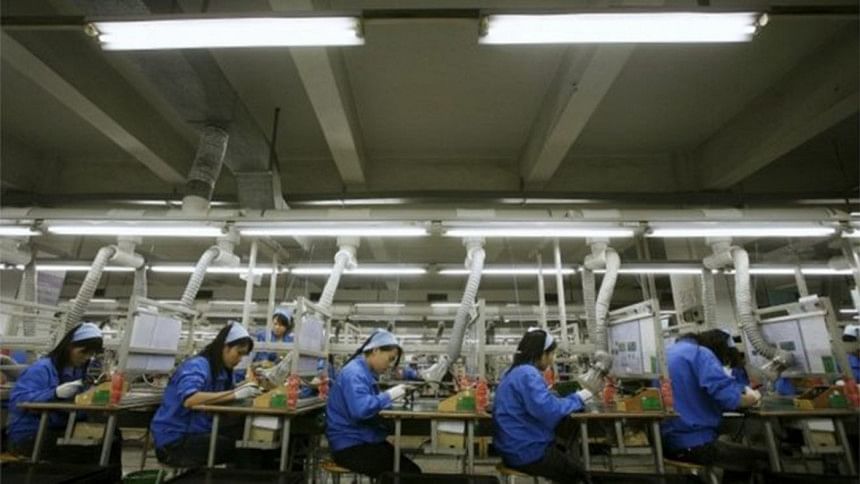IMF downgrades global forecast

The International Monetary Fund has downgraded its forecast for global economic growth.
It now expects economic activity to increase 3.4% this year followed by 3.6% in 2017.
That means growth of 0.2% less each year than when the agency last published a forecast in October.
And there are warnings about the risks. The report says that if key challenges are not successfully managed, "global growth could be derailed".
In many respects, the picture is a familiar one. The recovery after the financial crisis continues. But in the rich countries, it is still "modest and uneven".
Only three large advanced economies are forecast to beat 2% growth this year: the US, the UK and one of the eurozone's crisis-hit nations, Spain, which has had its forecast upgraded.
The forecast for the UK is unchanged, at 2.2% for both years.
The report describes the picture for many emerging and developing economies as "challenging".
The largest downgrade for any individual economy is Brazil, where the IMF now predicts a contraction of 3.5% this year and no growth at all in 2017. That reflects the political uncertainty arising from the investigation into corruption at the oil company Petrobras.
Russia, hit by the decline in prices of its oil exports, is also likely to remain in recession this year before returning to modest growth next year.
Oil woes
Several other oil exporters are also looking at weaker performance than previously forecast.
Higher borrowing costs and lower commodity prices are weighing on several of the larger economies in sub-Saharan Africa - Nigeria and Angola, which are oil exporters, and South Africa.
Higher borrowing costs are linked to the actions of the US Federal Reserve. It raised US interest rates last month and it's expected to take further similar steps this year. That has led to higher borrowing costs for many borrowers in other countries.
China's widely reported economic slowdown is a central part of the unfolding economic story. It's reflected in the fall in commodity prices which have been affected by slowing Chinese demand.
In this report, however, there is no further change of the forecast for the country - growth this year of 6.3% and 6% in 2017. For Asia's other large emerging economy, India, there is also no change to the forecast with growth predicted at 7.5% over both years.
There are, inevitably, risks even to this decidedly lacklustre forecast. China is one of them, the possibility that the slowdown might be unexpectedly sharp.
The expected rise in interest rates in the United States could raise interest rates further for many other countries. It has already led to a stronger dollar, as investors take money back to the US to get the benefit of those higher rates. For those borrowers who have debts in dollars, they will be more expensive to repay.
There is also the danger of what the report calls "a sudden rise in global risk-aversion", where financial market investors become more inclined to sell assets seen as relatively risky and go instead for the safe ones - such as US, German, and British government bonds and gold.
There has been a hint of that already this year, as markets got 2016 off to a very stormy start.

 For all latest news, follow The Daily Star's Google News channel.
For all latest news, follow The Daily Star's Google News channel. 








Comments